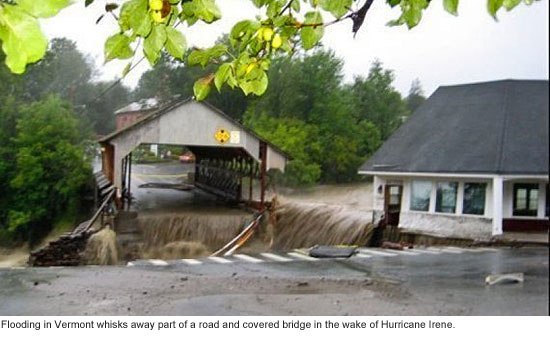Emergency prep takes a village, too
August 31, 2011
 National Preparedness Month couldn’t come at a more appropriate moment. With the Northeast recovering from an atypical hurricane just one week after it was struck by a rare earthquake, the whole country is reminded just how tough disasters are to forecast. Preparation is vital, and Los Angeles County is getting in on the efforts.
National Preparedness Month couldn’t come at a more appropriate moment. With the Northeast recovering from an atypical hurricane just one week after it was struck by a rare earthquake, the whole country is reminded just how tough disasters are to forecast. Preparation is vital, and Los Angeles County is getting in on the efforts.
“One thing we can be sure of is that emergencies happen, disasters happen,” said director of L.A. County Department of Public Health Dr. Jonathan Fielding, speaking before the Board of Supervisors on Tuesday. “They’re not things we can project, but we have to be prepared.”
While most folks in L.A. County understand the importance of maintaining an emergency kit, Fielding points out an important aspect of preparedness some may not have considered–community cooperation.
“We have to start our preparation not just about ‘me,’ but about ‘we,’” he said.
“Connect, prepare and respond” has become the official catchphrase for an effective, community-based response. Neighborhoods “connect” by meeting to share contact info and resources. Together, they can then “prepare,” setting up methods of communication and creating a neighborhood map with evacuation routes. Finally, the community “responds” when a disaster happens. Emergency personnel are likely to have their hands full at such times, so cooperation is crucial to protecting all of us, especially vulnerable groups like the elderly and disabled.
The Department of Public Health’s website has preparedness tips, including ten things you should have in an emergency kit and how to create a family emergency plan. It also lists links to other important emergency resources. Residents can also call the Emergency Preparedness Hotline at 1-866-999-5228 and speak with operators in eight different languages.
National Preparedness Month is organized by the U.S. Department of Homeland Security with Federal Emergency Management Agency (FEMA), Centers for Disease Control and Prevention (CDC), the American Red Cross and others. These groups have valuable online resources available to the public, available here, here, and here. The Red Cross even has a user-friendly tool that goes step-by-step through emergency preparedness so there’s no excuse for getting caught unprepared when disaster hits.
Posted 8/31/11












 405 bridge work causes a stink
405 bridge work causes a stink
